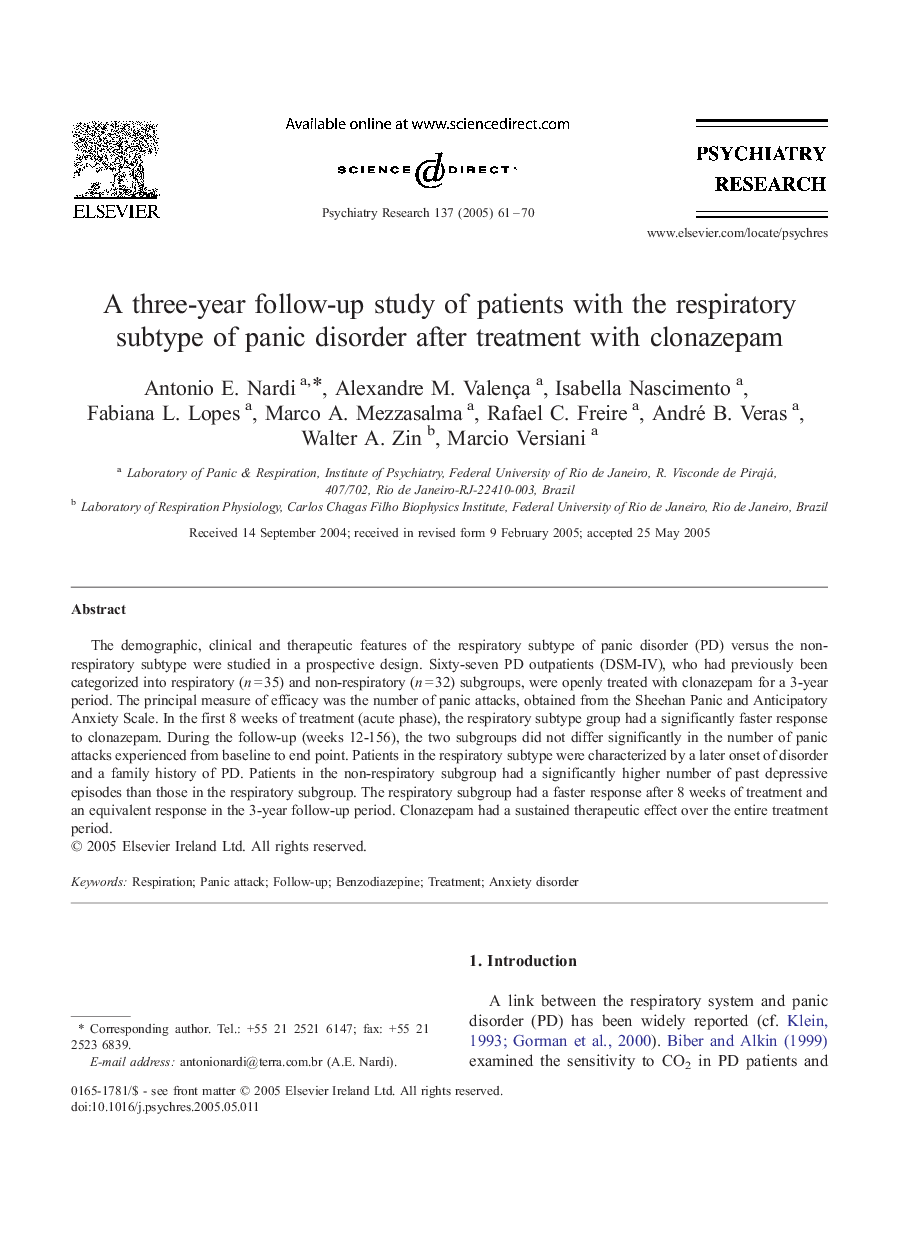| کد مقاله | کد نشریه | سال انتشار | مقاله انگلیسی | نسخه تمام متن |
|---|---|---|---|---|
| 9645954 | 546060 | 2005 | 10 صفحه PDF | دانلود رایگان |
عنوان انگلیسی مقاله ISI
A three-year follow-up study of patients with the respiratory subtype of panic disorder after treatment with clonazepam
دانلود مقاله + سفارش ترجمه
دانلود مقاله ISI انگلیسی
رایگان برای ایرانیان
کلمات کلیدی
موضوعات مرتبط
علوم زیستی و بیوفناوری
علم عصب شناسی
روانپزشکی بیولوژیکی
پیش نمایش صفحه اول مقاله

چکیده انگلیسی
The demographic, clinical and therapeutic features of the respiratory subtype of panic disorder (PD) versus the non-respiratory subtype were studied in a prospective design. Sixty-seven PD outpatients (DSM-IV), who had previously been categorized into respiratory (n = 35) and non-respiratory (n = 32) subgroups, were openly treated with clonazepam for a 3-year period. The principal measure of efficacy was the number of panic attacks, obtained from the Sheehan Panic and Anticipatory Anxiety Scale. In the first 8 weeks of treatment (acute phase), the respiratory subtype group had a significantly faster response to clonazepam. During the follow-up (weeks 12-156), the two subgroups did not differ significantly in the number of panic attacks experienced from baseline to end point. Patients in the respiratory subtype were characterized by a later onset of disorder and a family history of PD. Patients in the non-respiratory subgroup had a significantly higher number of past depressive episodes than those in the respiratory subgroup. The respiratory subgroup had a faster response after 8 weeks of treatment and an equivalent response in the 3-year follow-up period. Clonazepam had a sustained therapeutic effect over the entire treatment period.
ناشر
Database: Elsevier - ScienceDirect (ساینس دایرکت)
Journal: Psychiatry Research - Volume 137, Issues 1â2, 15 November 2005, Pages 61-70
Journal: Psychiatry Research - Volume 137, Issues 1â2, 15 November 2005, Pages 61-70
نویسندگان
Antonio E. Nardi, Alexandre M. Valença, Isabella Nascimento, Fabiana L. Lopes, Marco A. Mezzasalma, Rafael C. Freire, André B. Veras, Walter A. Zin, Marcio Versiani,